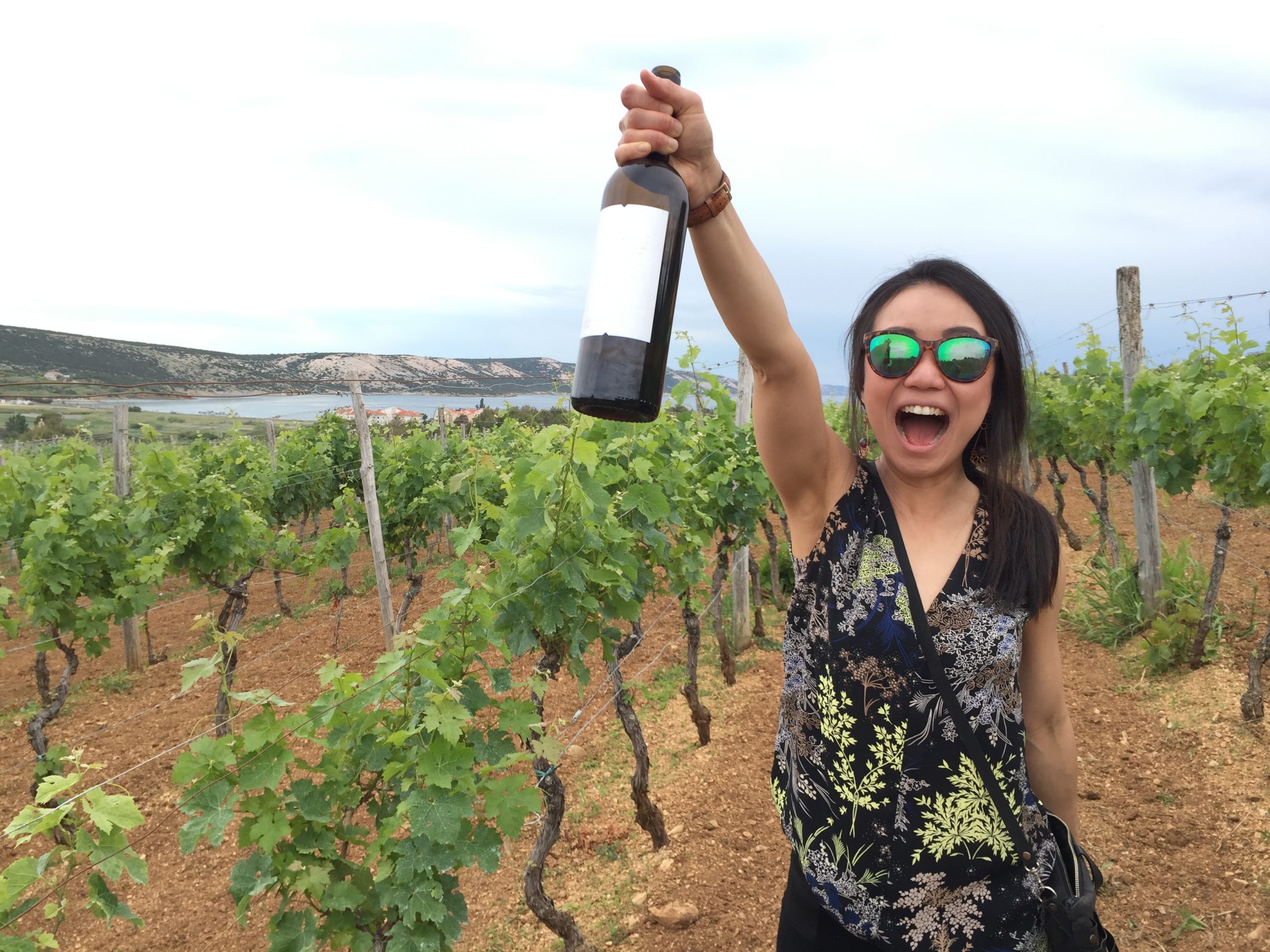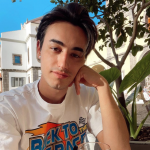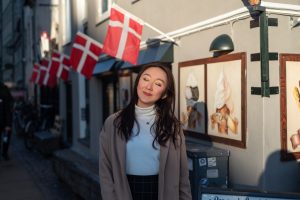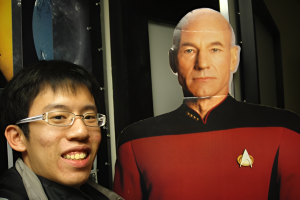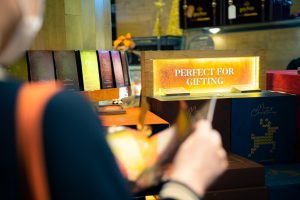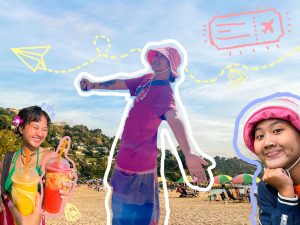Top image: Charine visiting a vineyard in Croatia
In ‘Singaporeans Abroad’, we share with you the stories of locals who—thanks to living in a globalised world—have found success in different corners of the globe, whether financially, romantically, or for the pure joy of adventure.
We’ve recently heard from Ronald, the Singaporean retiring on a 5-acre farm in Australia, Chris, the Singaporean learning Chinese on a remote British island, and Elene, the Singaporean mother bringing local food to Italy.
ADVERTISEMENT
Now, we bring you Charine. After achieving many of her career goals in Singapore, she wondered if there was more to life than just work. So she packed her bags and went to Europe to find out.
My family is what people would probably describe as a typical family in Singapore—practical, realistic, values a sense of security, and takes pride in hard work.
I don’t think there was anything unordinary about my upbringing except that I had extensive autonomy to run my own life from a young age. For example, I never had a curfew. I was also curious, somewhat rebellious, and often questioned many conventional beliefs.
I have had jobs since I was a student. I dropped out of JC to go to poly and took up part-time roles so I could move out of home and rent my own room. Because of these life choices, I gained life experience quickly and relatively early in life, along with the mistakes committed and learned.
By the time I was around 25, with the help of life coaches, I had established a clear value system for myself that led me to deprioritize marriage and family building, and instead, focus on career, self-expression, being a force for good, and developing a congruent, well-lived life.
My career was going well… then what?
In JC, I organized many parties, which landed me a job in a nightclub. From there, I got a marketing job for a club, and then I joined a PR agency, a branding company, and subsequently, a research management consultancy role.
I felt like my career was moving steadily, so I never desired to leave Singapore. I only first considered it in 2015 while working at a research and advisory company, now a subsidiary of Gartner. My career was on an upward trajectory. I enjoyed my job and had great mentors, colleagues, and friends. I wasn’t feeling lost and didn’t feel the need to ‘find myself’—I was merely intrigued by the opportunity to expand my horizons.
The main pull factor was the learning opportunities that the world could give me—I imagined it to be like a big campus for lifelong learning. There are things that we know and things that we know that we don’t know, but what about the things that we don’t know that we don’t know?
I had reached my goal of establishing a successful career, but I still couldn’t help but wonder what else life could offer me. I always thought that I would finally feel satisfied when I got to this point in my career. However, reaching that milestone didn’t feel as good as I thought it would.
To keep up that career trajectory, I would have had to continue working 14 hours a day while finding time for a social life and personal hobbies. I thought to myself: am I going to keep doing this for the rest of my life? And am I ever going to feel happier? At that moment, I realized I was disenchanted. That couldn’t be all that life was about.
Around the same time, acquisitions and mergers were happening in my company which gave me the chance to meditate on the fragility of “career” and the ludicrousness of “security.”
ADVERTISEMENT
I was reminded that there is no such thing as security in life; security is a feeling and perception rather than actuality. How much should we focus on career-building and the financial benefits and social mobility that come with it when we can so quickly lose it someday? Why do we tie our identity to our jobs, and why do we let our career impact how we view ourselves and how others view us?
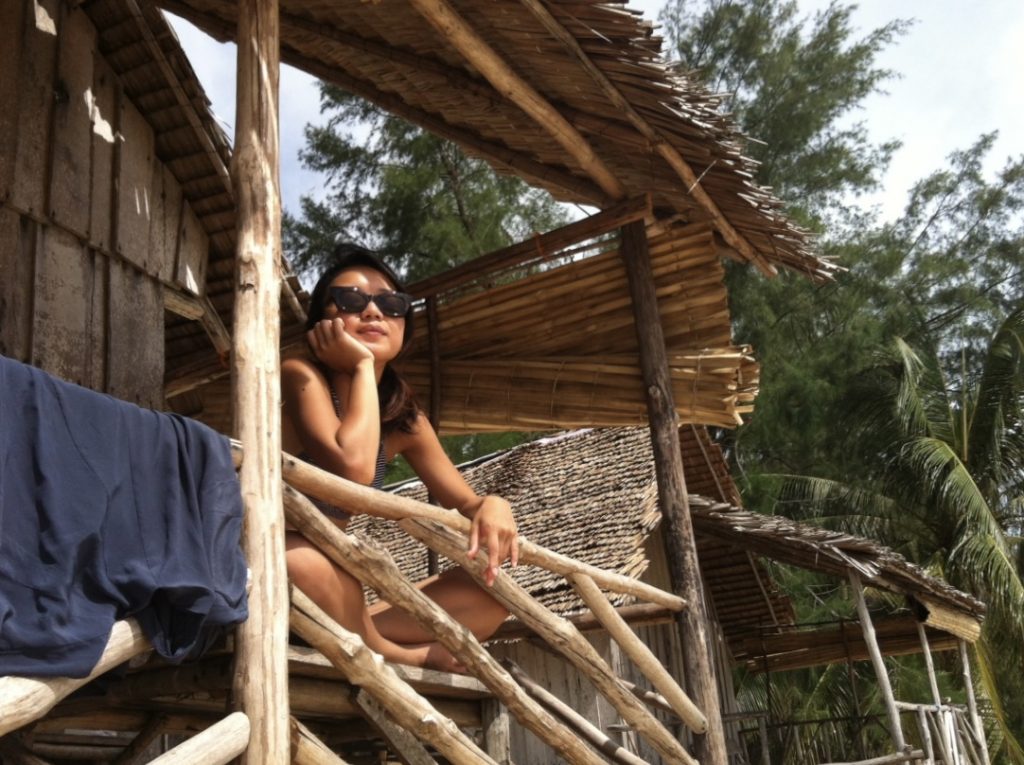
When I decided to travel, many people asked me: “I thought this is what you wanted?”
I think they couldn’t make sense of why I was leaving what I had behind.
Life out of a suitcase
While it may be easy for me to sit here and tell others how easy it is to take risks and follow passions, I can’t discount that the everyday reality is often different. We all have families to feed, bills to pay, and savings that will eventually run out no matter how prepared we are. But at the same time, if we do not take risks, we will never get to nakedly see the inner core of ourselves, all our shortcomings, and how far our potential can take us.
I gave myself a time limit of two years to figure this new lifestyle out. In that time, I wanted to learn and gain the experience of what it would be like to switch careers again, live out of a suitcase, establish myself in the wine industry as a young Asian female, and create a new social life. What would I lose? Time, and probably some of my savings.
The first seven months of travel were spent in Switzerland, Italy, Portugal, Spain, Turkey, Georgia, and Armenia. As a wine enthusiast, I jumped at the opportunity to learn about it in its birthplace—somewhere between today’s Armenia, Georgia, eastern Turkey, and northern Iran.
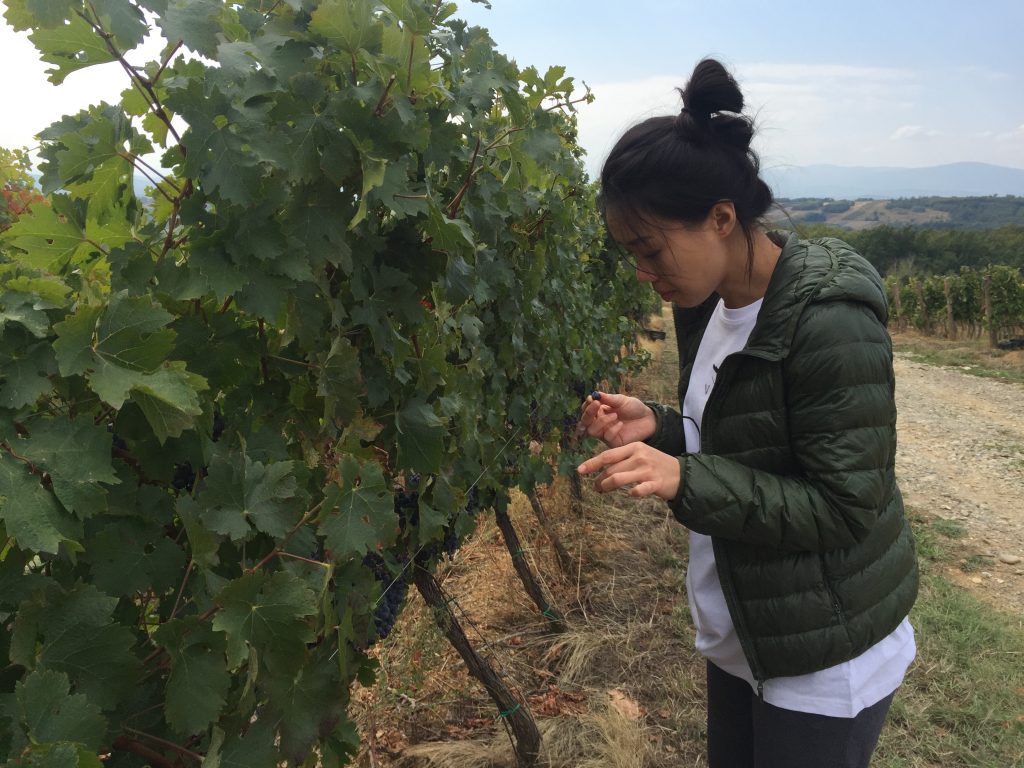
Eventually, the trip unveiled a possibility for me to work in the wine business. I was inspired to share the lesser-known stories of wine and to use wine, and food, as a hook to pique people’s interests in places that they may not have considered visiting. Suppose people can suspend their assumptions and certainties about what they know about wine and a specific country. In that case, they can also replicate the same attitude towards other aspects of their lives.
This two-year time frame was lost along the way as I saw my passion project grow slowly but encouragingly. Eventually, I found myself spending six years in the wine business, which included visiting hundreds of wine regions, authoring and publishing three books on the topic, and writing for media outlets across the globe. I even won a few accolades and became a judge at several wine competitions.
In 2020, because of COVID-19, I stopped living out of a suitcase and decided to take up residency in Croatia. Here, I’m close to wine countries and continue my work in the wine industry. At the same time, the pandemic hit me hard, and I fell into a rather dire financial situation. I started offering full-stack digital marketing services to other industries to boost my income and picked up occasional modelling gigs in Europe. That has turned out to be a blessing in disguise, as my life is even more eventful today than ever before.
Some days do get tricky, but then I think about this entire journey, and I’m in complete awe at how I’m alive and pushing my life as a digital nomad for the seventh year.
What makes our identity?
The hardest thing to leave behind in Singapore was not the physical possessions and comfort but my sense of self. To leave behind all types of familiarities—family, social circles, a job, financial well-being, and routine—is as good as giving up my entire identity.
Travelling has been liberating, challenging, scary, exciting, and ultimately beneficial. The process also taught me self-awareness, authenticity, humility, and the virtue of a simple life. It made me realize just how much stuff I had when living in Singapore. Stuff that didn’t contribute much to my quality of life.
We buy stuff, then we buy more stuff to hold our stuff, then we buy stuff to make all our stuff look good, so our stuff can make us look good, and we can feel good about all the stuff. Life on the road helps shine a light on the trivialities of life and shows us how we can whittle life down to the baseline of what we want and need to be happy.
I never wanted to pursue a life out of Singapore necessarily, but now, I don’t think I want to come back—at least for the time being. I feel disconnected from how I see life versus how it plays out in Singapore. Being in Croatia, I am more connected to nature. I can go for a long hike on a regular weekend or drive for two hours and be in a beach town. I’m also more connected to food here. I go to the farmer’s market, and I understand who makes my food. It makes me a more conscious consumer.
At the same time, I feel privileged and grateful to be Singaporean—a Singaporean digital nomad to be exact. I don’t think my family background has given me a headstart in life that can be in any way considered extraordinary. Still, the sole fact that I hold a Singaporean passport already puts me ahead of many people.
For one, I don’t run into visa complications when I travel. Two, as an ad-hoc contractor, I tend to command higher remuneration than others. Many companies worldwide hire remote workers and offer rates based on industry standards, but sometimes, the final offers are moderated based on one’s residency and citizenship. Three, in Singapore, we have access to so much cultural diversity, global exposure, and industry knowledge at our doorstep. That means our cultural literacy and business acumen can be far ahead of foreigners.
What Singaporeans can improve is the ability to navigate ambiguity and remain flexible. If you change your mindset, you learn to love and learn from life’s slightly humorous “epic fail” moments.
On many occasions in different countries and apartments, I couldn’t figure out how to turn on the radiator. My wet laundry once froze when I left it on the balcony during winter. Tap water can be so hard in some countries that they leave unsightly stains on pots and cutlery, and for a long time, I didn’t know how to clean off those stains.
At the beginning of my travel, I had ended up in cities and towns, assuming I could use public transport to get from one place to another—that was not always the case. Once in Turkey, I had to hike across a mountain range for three days as that was the only way to continue my journey. I bought fish from the market in Croatia, where the seller didn’t want to gut the fish, leading to my first time scaling and gutting fish. These are just some scenarios that I’d probably not have experienced in Singapore.
Deprioritizing career
After all these years on the road, dealing with daily life, sickness, work-related challenges, financial stress, a breakup from a 7-year relationship, and Covid-19 all by myself, I believe my resilience and personal accountability have strengthened. When we are all alone, we have no one to blame and rely on but ourselves. My perspective on life has changed drastically too. My life is now oriented around simplicity, humanity, kindness, authenticity, sustainability, and balance.
Speaking of balance: just a few months ago, I chose to deprioritize money-making and focus on building a sustainable career and business that can give me a better work-life balance. I think this change is mainly due to the influence of friends from Croatia and the Mediterranean. I live in such a beautiful country, so it seems rather foolish if I choose to spend at least 60 hours each week cooped up at home to work.
I feel less ambitious than before. But because ambitiousness was always ingrained in me in Singapore, in some ways, I feel less like a Singaporean now. Other reasons for this change are probably age and health issues that reminded me of memento mori (a symbolic reminder of the inevitability of death).
I don’t think there is a right or wrong, but I encourage Singaporeans to leave the city of comfort and go into the wilderness of their curiosity to discover themselves. Then, bring the new sense of self-realization back to Singapore and help others forge stronger, clearer meanings and purposes in their work and life.
It’s not just about a location change. It’s about a change in mindset. Often, we box ourselves in with definitions influenced by the physical environment and context we live in. We’d have no idea how much Singapore is influencing us—empowering or limiting us—unless we get out and take a good look at the other side of the story.

